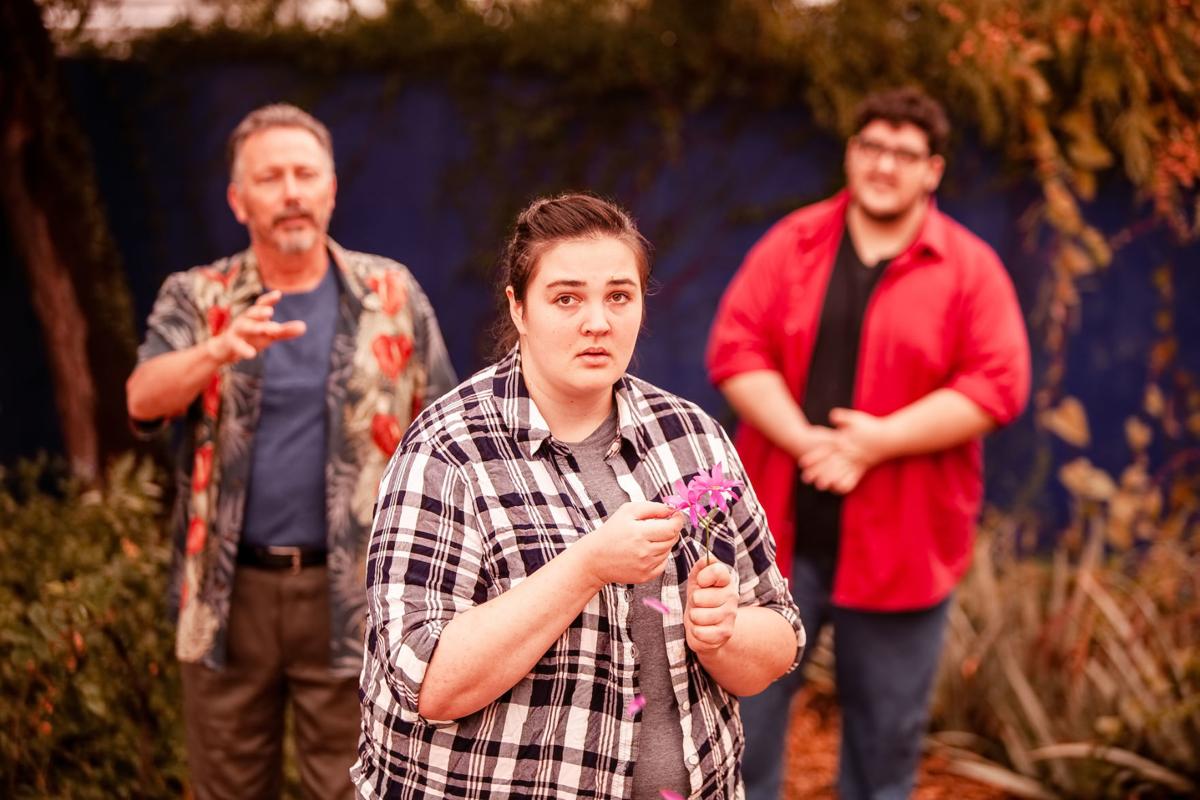It takes guts to fool around with Anton Chekhov. And Aaron Posner has got ’em.
“Stupid F#!*ing Bird,” Posner’s adaptation of Chekhov’s dark and brilliant “The Seagull,” is, well, dark and brilliant.
And Winding Road Theatre Ensemble’s production is as well.
Posner basically follows the framework of Chekhov’s slice-of-dreary-life story but sets it in modern times and infuses it with lots of swearing and lots of humor.
Oh, Chekhov’s version has humor, too, but few productions are successful at wringing it out.
The story gives us a peek at a slew of people who struggle to find purpose in life.
There is Con, a playwright who longs to please his actress mother, Emma, with his works. He is in love with the delicate Nina. She loves him until she meets Emma’s-lover-with-a-wandering eye, Trigorin, a famous writer. Nina wants to be famous, so she naturally gravitates toward Trigorin, with no qualms about moving in on Emma’s man.
Mash, forlorn and punked out, loves Con, who doesn’t care a whit for her. And loving Mash is Dev; she likes him, they are friends, but romantic feelings for him don’t exist. Soren, Emma’s brother, just wants to love and be loved.
Early on, Mash picks up a ukulele and sings a song that basically spells out the desperation that permeates the play: “Life is a muddle / Life is a chore / Life is a burden / Life is a bore / This apple is rotten right down to its core / Life is — disappointing.”
The fireworks begin as Nina takes the stage in Emma’s backyard to perform a “site-specific performance piece” Con wrote.
Nina is earnest; Emma, who sees the piece as an indictment on the more standard shows she does, is annoyed; Trigorin is taken with the young Nina; Mash can’t take her eyes off Con; Dev is zeroed in on Mash, and Soren, who admits that Cirque du Soleil is more his taste than this avant garde-ish stuff, is polite.
There is so much existential angst and raw emotions in this play, and this cast grabs ahold of them, making the play organic and quivering.
Director Maria A. Caprile made a wise decision when she cast Samantha Severson in the role of Con. This wasn’t an attempt to change the tenor of the play by making the male character a female. Clearly, Severson was just the best person to play him.
She was so deeply rooted in his desperation, his fury at his mother, his soul-wrecking love for Nina, that the casting against type was barely noted and quickly forgotten.
Mash was heartbreaking in China Young’s hands. She made the character’s love for Con, her pain at his lack of love for her, her fury at the unfairness of the world, palpable.
When she explains she wears black because “I’m in mourning for my life,” you knew she was.
Tyler Gastelum’s Dev was sweet, steadfast in his love for Mash and carried a whiff of optimism in spite of the fact that he is poor and lonely and has flat feet.
Gastelum hasn’t been seen much on Tucson stages; let’s hope that changes.
The rest of the cast impressed as well: Jodi Ajanovic’s Emma was cold and selfish; Richard Thompson’s Trigorin was arrogant and a tad slimy; Liz Claire Feliciano’s Nina was frail and impressionable, and Tony Caprile was befuddled and hopeful as Sorn.
Posner’s script is funny and sad and wildly clever. Director Caprile let it breathe and packed it with deep soul and some very clever topical humor.
And in the end, it left us with the same questions Chekhov’s version did: What is art? Why art? And life and love — what’s to be done with them?
See this. Really. It will make you laugh. Cry. And think.





